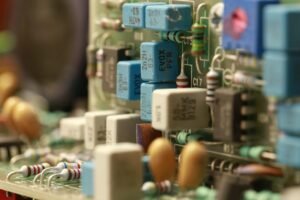Understanding Diffusion Models: Inception's AI Breakthrough
- THE MAG POST

- Nov 8, 2025
- 2 min read

To understand the future of AI, it’s essential to look at the innovative companies shaping the landscape. Inception, a startup specializing in diffusion-based AI models, has recently secured \$50 million in seed funding, signaling a significant shift in the approach to AI development. The funding round, led by Menlo Ventures, highlights the growing interest in diffusion models and their potential to transform various sectors. This article will delve into the technical underpinnings of diffusion models, exploring how they differ from traditional auto-regression models and why they offer distinct advantages. You’ll learn to understand the core principles driving Inception’s advancements and how these innovations are poised to reshape the future of AI. The following discussion will explore the key features and benefits of these innovative approaches, setting the stage for a deeper understanding of the evolving AI landscape.
Inception's \$50M Seed Funding: Advancing Diffusion Models in Software Development
The AI landscape is experiencing explosive growth, with substantial investments flowing into innovative startups. In this dynamic environment, Inception, a company pioneering diffusion-based AI models, has secured a significant \$50 million in seed funding. This influx of capital underscores the growing recognition of diffusion models and their potential to revolutionize various sectors, particularly software development. You’ll learn to leverage these advancements.
Understanding Diffusion Models: A New Approach
Diffusion models, the core technology behind Inception's advancements, represent a departure from traditional auto-regression models. Unlike auto-regression models that predict each word sequentially, diffusion models adopt a holistic approach, iteratively refining the overall structure of a response until it aligns with the desired outcome. This fundamental difference allows diffusion models to offer significant advantages in terms of speed and efficiency, especially when handling large codebases or dealing with data constraints. This innovative approach is key to Inception's strategy.
The Advantages of Diffusion Models
Inception's Mercury Model: Revolutionizing Software Development
With the new funding, Inception is also releasing an upgraded version of its Mercury model, specifically designed to transform software development processes. This model has already been integrated into several development tools, including ProxyAI, Buildglare, and Kilo Code. The diffusion approach, as Ermon suggests, promises to improve both latency and compute costs.
Mercury Model's Key Features
The Future of AI: Diffusion Models Leading the Way
The success of Inception, and the interest in diffusion models, signifies a paradigm shift in AI. As the demand for more efficient and faster AI solutions grows, diffusion models are poised to become increasingly important. Their ability to handle large data sets and complex tasks while optimizing hardware utilization positions them as a key technology for the future. The ongoing innovation in this area promises to drive further advancements, with implications that reach far beyond software development.






















































Comments